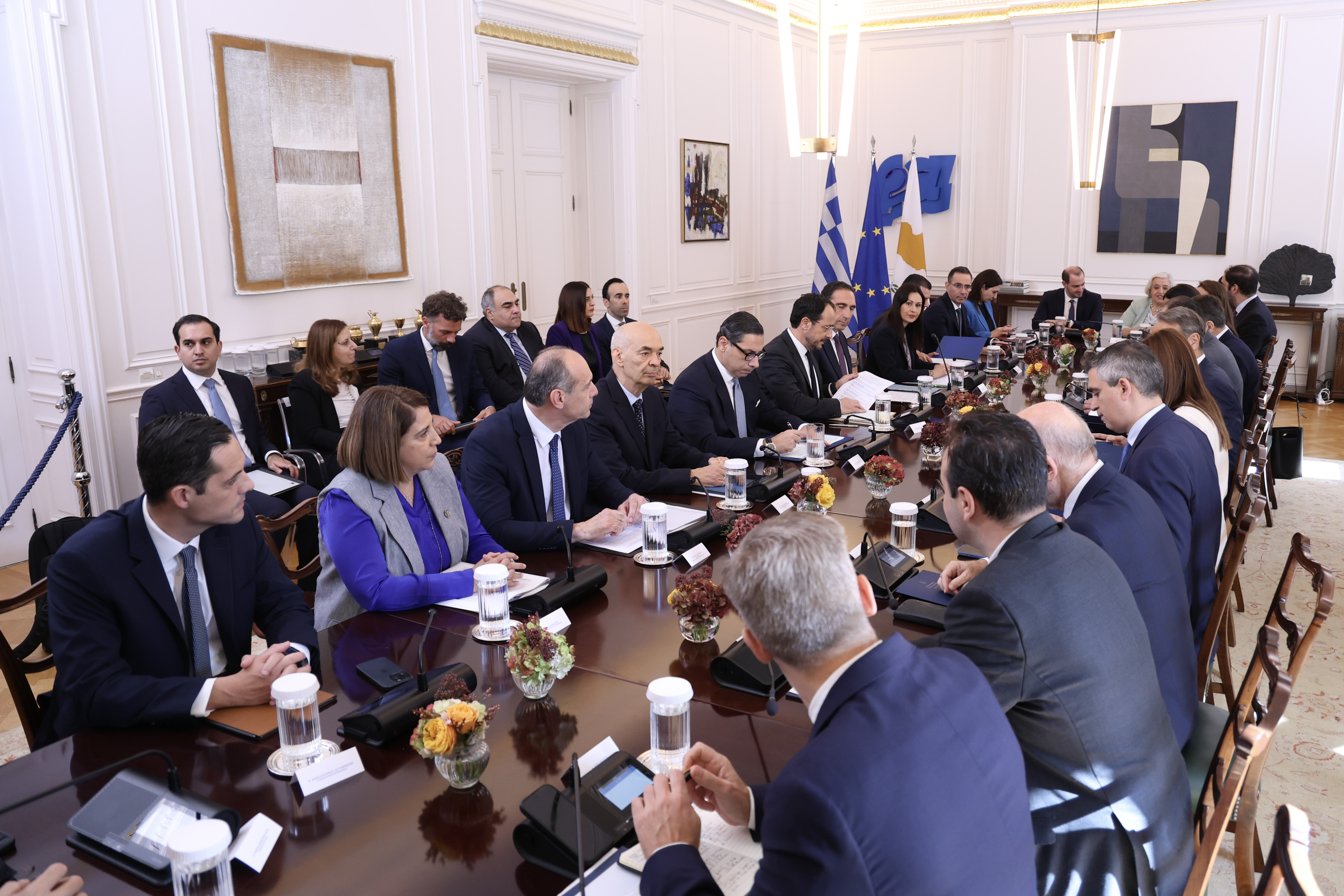The governments of Cyprus and Greece on Wednesday agreed to “update the economic and technical parameters” of the Great Sea Interconnector project, which, if completed, will link the electricity grids of Cyprus, Greece, and Israel.
The agreement was announced at joint summit held by the two countries’ governments in Athens, with Greek Prime Minister Kyriakos Mitsotakis saying that the move will allow the project to be “strengthened with the entry of new, strong investors, which is to the benefit of all of us”.
Meanwhile, Cypriot President Nikos Christodoulides said the two countries are “moving forward in full coordination in expanding our mutual and regional energy cooperation and interconnectivity”.
“I will agree with Mitsotakis that our common goal is to take essential actions for the effective implementation of projects which will have tangible economic benefits as well as a geopolitical footprint, and it is precisely in this context that we have agreed with [Mitsotakis] to update the economic and technical parameters,” he said.
Opening the project to further investment may soothe the rift between the Cypriot and Greek governments which has been rumbling for months over the Cypriot government’s initial agreement to make five annual payments of €25 million to Greece’s independent transmission system operator Admie for the project.
The payments would be made in advance of the project’s completion, and ould in effect help finance the project and ensure that Admie, its 51 per cent shareholder and implementing body, will have a stable income while investing in the project before it turns a profit.
However, the Cypriot government has thus far withheld the funds, cited a lack of tangible progress on the project and differences in opinion regarding how the money should be sourced as its reasons behind not paying the money.
Cypriot Energy Minister George Papanastasiou had said in September that Cyprus will pay the first €25m instalment when the project is being “implemented in its entirety”, and that the construction of cables alone is “not enough” to meet this criterion.
Differences between the two governments became further entrenched Cypriot Finance Minister Makis Keravnos accused Papastavrou of “fake news” over the matter, with Greek Foreign Minister Giorgos Gerapetritis calling for clarity regarding Cyprus’ position the following day.
Keravnos’ comments had come after Papastavrou had said that he “does not show” the studies which he claimed demonstrate the project is not sustainable.
In response, he said the studies had been commissioned by Papanastasiou, that they were “properly delivered” to the Greek energy ministry, and that they had even been sent to Papastavrou’s predecessor Theodoros Skylakakis.
Papastavrou had previously decried what he described as “constantly conflicting messages from the Cypriot side” over the matter.
In more positive news for the interconnector, Papanastasiou attended a ‘3+1’ meeting of the energy ministers of Cyprus, Greece, Israel, and the United States last week, where the four ministers present – Papanastasiou, Papastavrou, Eli Cohen of Israel, and Chris Wright of the US, had also made reference to electrical interconnection projects.
The four had committed to “use the 3+1 format to support the goal of diversifying the region’s energy supplies by reducing reliance on malign actors and improving connectivity between likeminded regional partners”, with the statement also declaring their aim to meet again in Washington DC between April and June next year.






Click here to change your cookie preferences